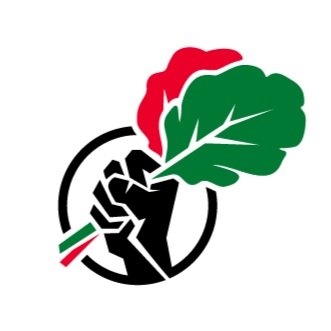Resourcing Our Communities in Times of Crisis
Beautiful family,
As our people work to recover from yet another round of human induced and exacerbated climate related winter storm disasters in Mississippi, Texas, Louisiana and Arkansas, I am struck with the urgency of ensuring our communities are resourced, networked and organized now more than ever. Reportedly over 200,000 people (and counting) have been or were without power and water in Mississippi for about a week. It has been reported that 254 counties in Texas were affected with dozens reportedly losing their lives and millions have been without water. It is heartbreaking. What is even more heartbreaking is we know among those impacted, the hardest are Black people.
“We can absolutely no longer afford to allow neoliberalism and rugged individualism to be the pervasive norm. We have to find much stronger ways to prepare our communities, organize and resist. ”
As an organizer with a deep love and belief in our people, I am also sitting inside of the possibilities of this moment. Can we learn the lessons we need to learn, tap into the brilliant insights from those of us who have been surviving and forging a new way? I think of our members at Black Oaks Center for Sustainable Living in Pembroke, Illinois, a 40 acre off-grid eco-campus who have led the work building a resilient system and teaching our people to be less reliant on fossil fuel consumption, feeding our communities and to build much more resilient relationships with one another. I am thinking of our members at the Peoples Advocacy Institute in Jackson, Mississippi, working day and night to distribute essential needs like water and food to neighbors all over Jackson. I am thinking of our comrades at the Gulf Coast Center for Law and Policy who have been teaching and helping communities in the Gulf Coast to recover from disaster after disaster. I am thinking of the essential infrastructure created through the Movement for Black Lives to coordinate wellness checks and a disaster recovery plan that centers the actual needs of our people. And I am thinking of our Blackademics co-lead, Dr. Ashante’ Reese and the mutual aid networks she and her colleagues/neighbors have built in Texas to respond to their own needs and the needs of the greater community when infrastructure was severely lacking.
With all of this, I am thinking of the urgency of creating the economies of care that our people need and deserve in addition to the long lineage of mutual aid support networks that our people have always been inside of (see chapter 1 of Dr. Jessica Gordon Nembhard’s book “Collective Courage: a History of African American Cooperative Economic Thought and Practice”).
“Finally, I am thinking how grateful I am for this Alliance of brilliant, resourceful, creative and committed organizations and leaders creating communities of care when we need it most. Last year, we experimented with a rapid response to COVID needs for our members and this year our leadership team just approved a proposal to institute this program as the new Mutual Aid Resource Council. In the coming weeks, we will be inviting NBFJA members to join the council to be able to help guide resources to those of our folks most in need, so please look out for that invitation and more information.”
We are also super grateful for our program officers at Surdna Foundation, Kataly Foundation, 11th Hour and more to come who are always ready to help with emergency needs for our people when we ask and will be working with the Southern Power Fund and Highlander Center to make sure we help get resources to the organizations and mutual aid infrastructures working diligently to care for our people.
We are so grateful for the resources, the brilliance and the care our people continue to extend. Let us continue to build the systems, the economies and the infrastructure our people need and absolutely deserve. Let us also be inside of some serious organizing to change the policies and systems that continue to create these disasters and conditions for our people in the first place. We have so much to do. Together. As our movement Mama and elder Iya Ifalola Omobola teaches us:
“It is time.”
So much love, fam.
Dara Cooper,
Executive Director & National Organizer, NBFJA
